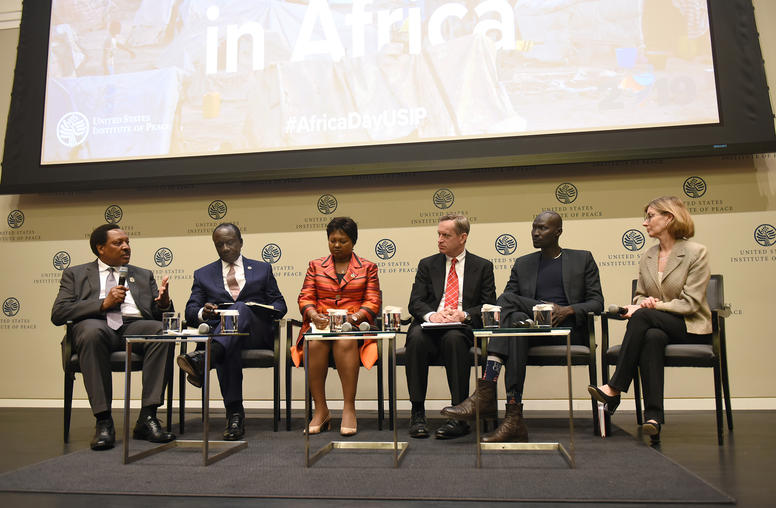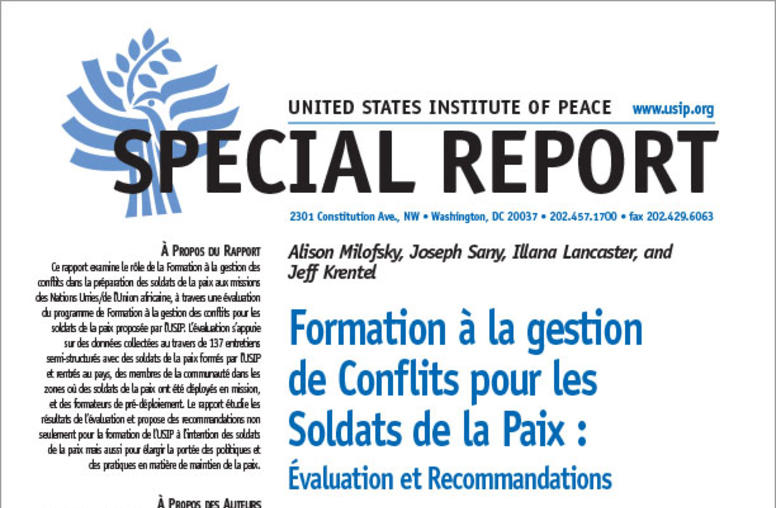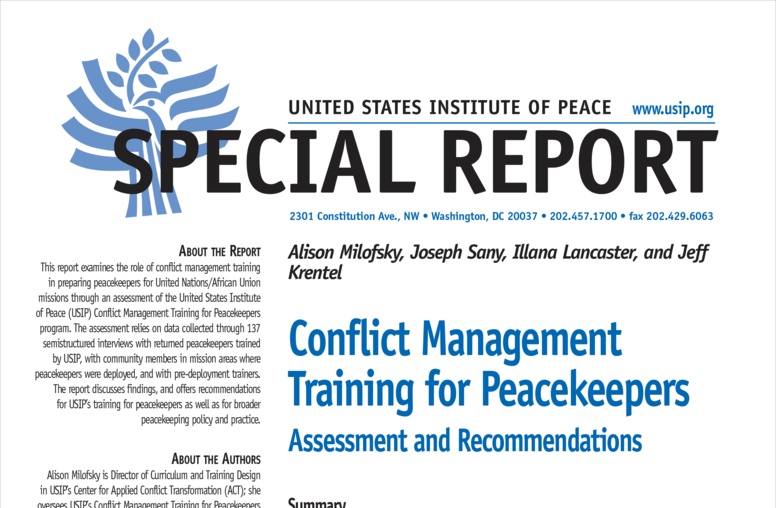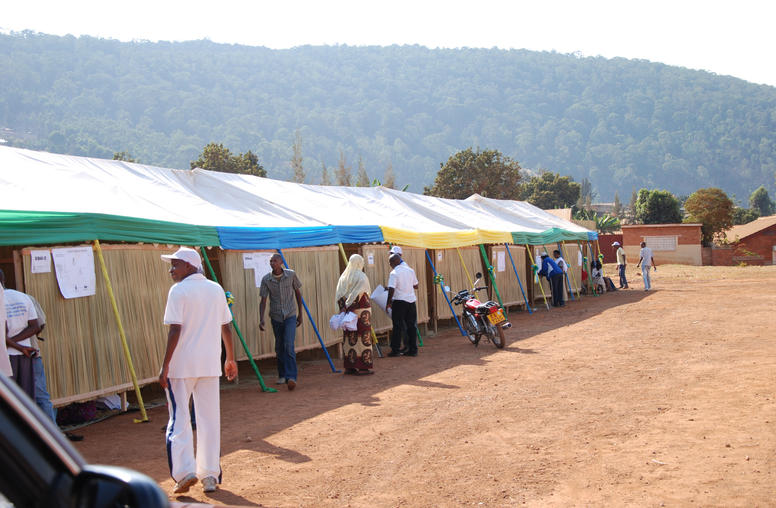Rwanda experienced a failed peacekeeping effort and underwent a horrific tragedy in 1994. More recently, the Darfur region of Sudan has undergone similar experiences. Today, Rwandan soldiers are playing a major role in Darfur as peacekeepers, and USIP is helping train them on how to do it.
Posted: June 17, 2011
Rwanda experienced a failed peacekeeping effort and underwent a horrific tragedy in 1994. More recently, the Darfur region of Sudan has undergone similar experiences. Today, Rwandan soldiers are playing a major role in Darfur as peacekeepers, and USIP is helping train them on how to do it. The Academy’s Ted Feifer, Keith Bowen, and contractor Joseph Sany led a USIP workshop for Rwandan Defense Force (RDF) officers preparing an infantry battalion for deployment with the United Nations/African Union Hybrid Mission in Darfur (UNAMID).
The training was conducted in partnership with the Department of State's African Contingency Operations and Training Assistance Program (ACOTA). The workshop was held April 4–6, 2011 at the RDF base at Gako, one hour's drive south of Kigali.
The 25 workshop participants included the battalion commander and his subordinate officers. The program focused on developing and improving core conflict management and resolution skills for military officers deploying as peacekeepers, particularly in their Darfur mission area. Program objectives were to develop and build analytical, communication, negotiation, and third party skills; strengthen problem solving in individual and group situations; and share lessons learned in the prevention, management, and resolution of conflict.
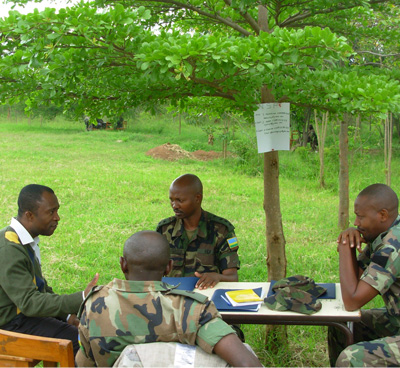 Participants took part in practical exercises involving conflict analysis, communication, negotiation, and the role of a third party. This included an exercise on unplanned and potentially dangerous negotiations at a roadblock. Participants also learned about the challenges of working with an interpreter in a peacekeeping context.
Participants took part in practical exercises involving conflict analysis, communication, negotiation, and the role of a third party. This included an exercise on unplanned and potentially dangerous negotiations at a roadblock. Participants also learned about the challenges of working with an interpreter in a peacekeeping context.
The workshop also addressed the protection of civilians, focusing on its importance to the peacekeeper and issues for the military commander. Finally, participants had an opportunity to apply all the skills learned in a final complex, multiparty crisis simulation with a Darfur-like context.
The consensus of the post-workshop evaluations was that the workshop provided highly useful skills that were directly relevant to the impending peacekeeping mission in Darfur. As one participant put it, “The workshop opened my mind in terms of negotiating when some [conflict] situations arise, especially for our next deployment.”
This was the 23rd ACOTA workshop conducted by USIP’s Academy for International Conflict Management and Peacebuilding as part of an ongoing program, all of them held in the African troop-contributing countries.
